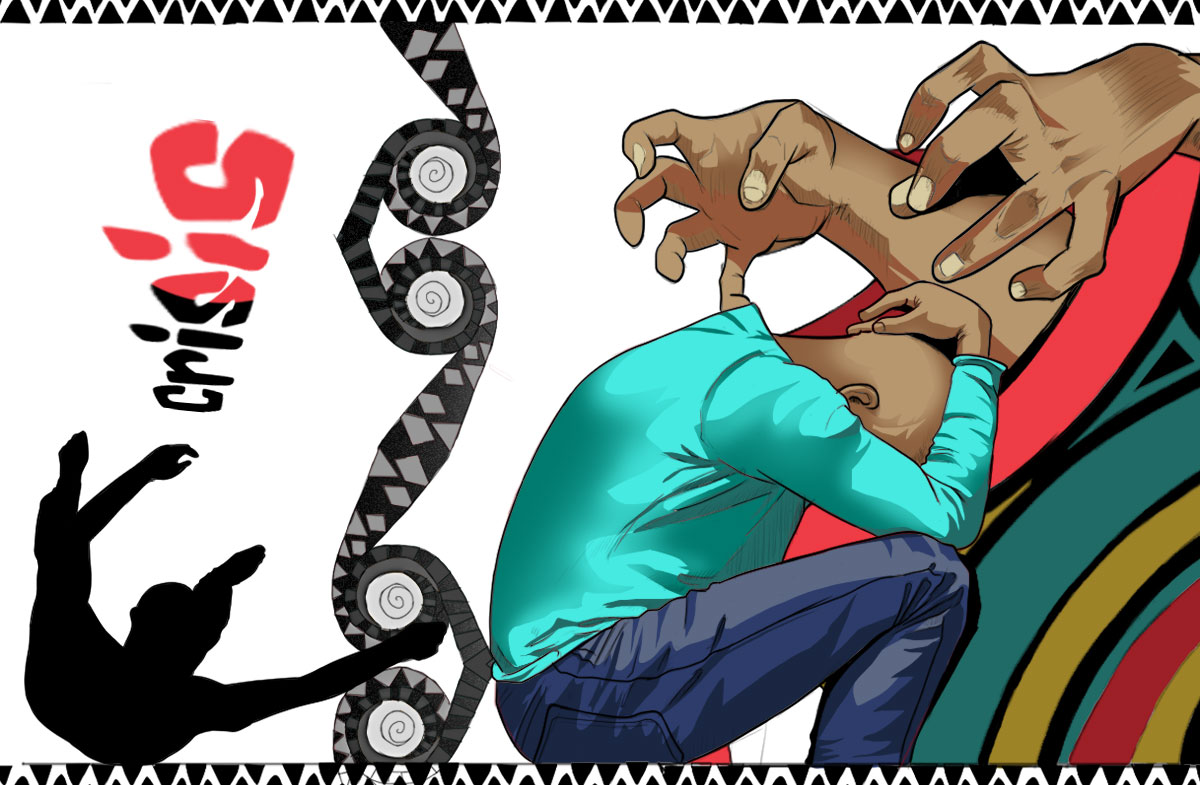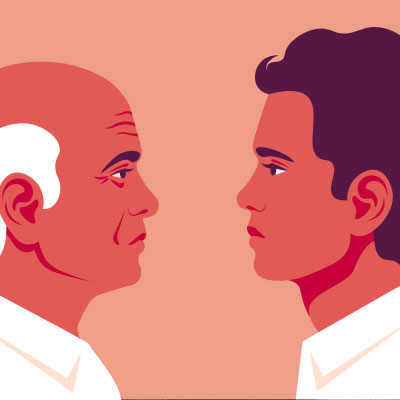At a European Leadership Conference a few years ago, Dr Michael Oh, global executive director / CEO of the Lausanne Movement, mentioned the following quote: ‘More than 60% of all leaders do not finish.’
More than 60% of leaders give up far too early, lose their faith, mess up, and fall deep.
He was not just talking about not finishing well, but not finishing at all. More than 60% of leaders give up far too early, lose their faith, mess up, and fall deep.
When I heard this statistic, I thought, it is far too terrible. But then I started to reflect on leaders, including myself, who have been on the brink of giving up. So many leaders around me have given up, lost their faith, left their marriages, had a breakdown, and even worse, committed suicide.
Leadership and pain are two sides of one coin. As leaders, we engage with others and are willing to carry the weight of responsibility. But no matter how many people might follow you as a leader, there will be pain involved.
Reflecting on and writing about this topic led me to the book Leadership Pain by Samuel R. Chand, who mentions that according to statistics in the US, only 1 in 20 pastors is still in church-based ministry when they reach retirement age.
This number is far too low. Although some may leave to pursue ministry opportunities beyond the walls of the church, many leave because of pain-related causes. And every leader who does not finish well is one too many. As we seek to follow Jesus and build his kingdom, everyone matters. Everyone is needed!
Being in leadership is nothing to brag about or be proud of. It is rather a huge privilege that God entrusts us to lead. It is primarily about following God, and through that, influencing others to follow God.
If God calls you and I to lead, no matter how many people and how big your influence might become, we need to embrace this calling and continue to lead, even through pain.
Article
How Do You Protect Your Rest and Sabbath Time? A global snapshot
Lausanne Movement staff members from around the world share how they protect their rest and sabbath time on a daily, weekly, and seasonal basis.
Stumbling Blocks in Leadership
Dan Allender in his book Leading with a Limp describes six major challenges leaders will need to face. At the outset, just because you as a leader will face one or more of these challenges says nothing about your leadership calling or gifting.
Let´s take a closer look at the six realities Allender mentions:
![]() Crisis
Crisis
Crisis is the eruption of chaos and it reminds us that we are not in control. Things happen in life and ministry that provide us opportunities for growth, but also take us to the edge, where some do not survive.
A crisis can happen internally, where we cannot deal rightly with our doubts and question God, or externally, where something so painful happens to our families and beloved ones that it leaves us totally wrecked.
![]() Complexity
Complexity
As leaders we will have to deal with competing values, demands, and perspectives. We have all these competing possibilities. Your ministry grows and becomes complex, your ministry minimizes and you face complexity.
This can surely leave us insecure and vulnerable, and it is often very hard in such times to make the right decisions.
![]() Betrayal
Betrayal
If you lead, you need to be aware that you will always have a Judas or Peter on your team. One day some of your closest friends might turn against you for whatever reasons. This can create a lot of bitterness and wondering if investing in people is a waste.
Even when there might be forgiveness, a scar will remain. This reality is one of the biggest stumbling blocks for leaders and causes them to drop out of ministry.
![]() Loneliness
Loneliness
Few friendships can endure one friend having more power than the other. The higher up you get, often the less friends you might have. It also relates to changes in family relationships and friendships. As you lead, you will eventually always disappoint someone.
Allender writes that as leaders, we need to even be willing to be hated, as we can never get it right for everyone. On top of loneliness can come the guilt of failing.
![]() Weariness
Weariness
When I encounter leaders after a few years, I often notice that their appearance has changed. The have turned greyer, gained more wrinkles, and are more tired.
Leaders seem to have a faster expiration date. Bearing responsibility adds stress to our lives. It is bearing hope despite the circumstances which can cost us a lot of energy. Some of us have also developed a messiah complex and want to save the world ourselves.
![]() Glory
Glory
Who gets the glory at the end? Is it God or the team or even the leader himself?
Once you have been successful and reached the goals with your team, led a fantastic event, and together climbed spiritual mountains, there can be deep struggles with glory and fame.
God often challenges us then with another difficulty so that we need to stay humble and dependent, realizing who is worthy to receive all honour.
Embracing the Pain in Leadership
You might wonder why you should even be willing to lead or continue to lead, having to face such challenges and become wounded as you serve God.
The vision for the kingdom of God gets us out of bed.
There is simply nothing better than doing what God calls us to do. The vision for the kingdom of God gets us out of bed. Even though it might be the hardest thing you will ever do, I hope you will also find it the most rewarding. Being in God´s will helps us to do His will – and sometimes helps us return to it.
There are various important steps to dealing with pain in leadership. Do not treat pain as your enemy but as your friend for growth. Paul encourages his young mentee Timothy to trust God and finish the race (2 Tim 4:7), above all keeping the faith. God is not primarily interested in us leading but in us loving him first and above all else. Therefore, we must embrace the pain in leadership.
Four Lessons on Leading through Pain
Here are some of the lessons I learned from having to deal with a serious leadership crisis I had in 2016, which knocked me off my feet for nearly a whole year. I experienced God´s closeness, help through people, and slow healing, and my scars have now become a precious tool in my toolbox. I have grown, I have failed, I am forgiven.
![]() 1. Rethink your theology on pain and suffering.
1. Rethink your theology on pain and suffering.
Though I have been a Christian since childhood, I so often catch myself in carrying a wellness gospel in me. I subconsciously believe that if I work for God, then everything will be fine. God will be proud of me and bless me with good things.
Reading the New Testament, this is far from reality. Coming from the west, I so often need to repent from this distorted way of facing pain as the evil and thinking I do not deserve such misery. Christians following Jesus need to daily be willing to bear the pain and carry the cross.
![]() 2. Find a pain buddy.
2. Find a pain buddy.
The more leaders I interview who have gone successfully through their challenges, the more I see that they have a group of committed leader friends who support each other through thick and thin.
They are willing to look out for each other, be accountable, and share their joys and struggles in a safe and sacred space of a few pain buddies who are committed to going through life together. Healing takes place there.
Article
Senior Leader, Here’s How You Can Encourage Younger Leaders
As older leaders, we long for the younger generations to meet Jesus and experience his healing power, be restored, and become influencers for global missions. Here are three ways we can come alongside them in the process.
![]() 3. Seek a mentor – do not walk this journey alone.
3. Seek a mentor – do not walk this journey alone.
As we endure leadership situations or face incredibly successful times, it is best to have an ‘alongsider’ (as Ole-Magnus Olafsrud from the YLGen team calls them) next to you.
An alongsider or mentor helps you to seek God first and set the right priorities, and challenges ungodly behavior while always believing the best for us. Pray for someone who points you to God lovingly and continuously.
![]() 4. Endure the liminal spaces.
4. Endure the liminal spaces.
Most of us dislike waiting, but these waiting periods can become our turning points. Make sure you don’t miss out.
There will be seasons in your leadership where you will have a hard time discerning God’s voice or where you do not hear his whisper. These times of being in a spiritual desert are times where God can meet us the deepest.
Decide to stay in this in-between space as long as you have not heard God say, ‘Move on.’ Do not find means to escape this sacred space where God invites you to take off your shoes and be. Most of us dislike waiting, but these waiting periods can become our turning points. Make sure you don’t miss out.
Whatever works for you, may you come to love God even more. Obstacles and challenges in leadership grant you unique opportunities for growth.
May I encourage you to accept pain as part of your leadership story and develop your own strategies with God on how to deal effectively with pain. Pain can be incredibly hard to bear, but God is right in the midst of it and carries it with you.
Photo Credit
Header illustration by Thomas Emmanuel Ayodele



